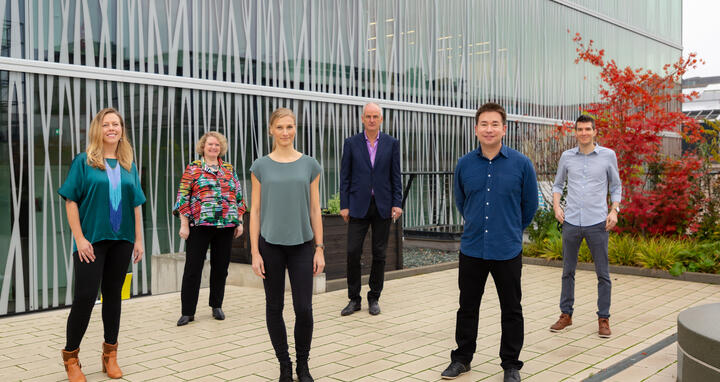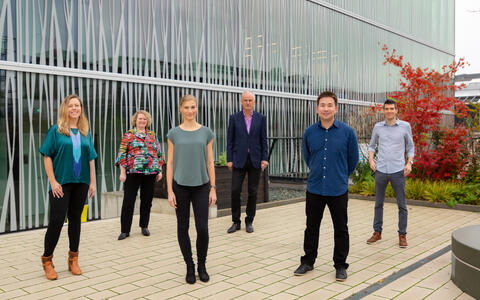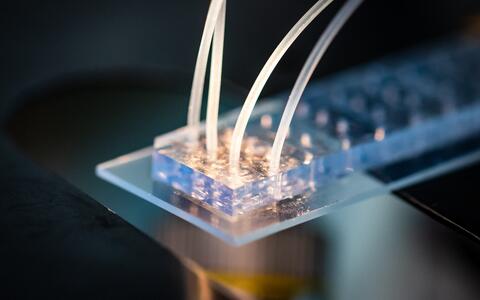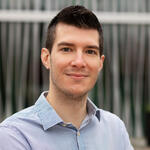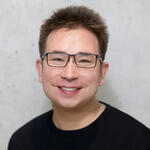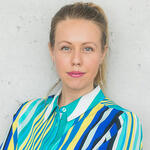Four new groups use single-cell methods to advance medicine
They were declared the “2018 Breakthrough of the Year”: new single cell technologies that let researchers analyze the genetic activity of individual cells was chosen as that year’s top scientific achievement by the eminent journal Science. “These revolutionary technologies can play a major role in personalized medicine,” says Professor Christopher Baum, Chair of the BIH Board of Directors and Chief Translational Research Officer of Charité – Universitätsmedizin Berlin. “We have therefore decided to promote the translation of single-cell analysis. We want to expedite the transfer of research findings into clinical practice and vice versa, using clinical observations to explore new avenues of single-cell research.” To this end, the Berlin Institute of Health (BIH), the Max Delbrück Center for Molecular Medicine in the Helmholtz Association (MDC) and Charité – Universitätsmedizin Berlin have jointly established the focus area “Single-Cell Approaches to Personalized Medicine.”
State-of-the-art technologies for clinical use
The picture shows the four young junior research group leaders with the chairs of the Single Cell Program: Ashley Sanders, Angelika Eggert, Stefanie Grosswendt, Nikolaus Rajewsky,Leif Ludwig and Simon Haas (from left to right).
At the core of the new focus area are four new junior research groups, whose leaders were selected in a competitive international recruitment process. Dr. Leif Ludwig, who comes to Berlin from the Broad Institute in Cambridge, Massachusetts, will study with his group how the development and function of stem cells is linked to the DNA of their “cellular power plants,” the mitochondria. Dr. Simon Haas comes from the German Cancer Research Center in Heidelberg and will use cancer stem cell analysis to investigate the origin of leukemia diseases in a targeted way. Dr. Stefanie Grosswendt from the Berlin Max Planck Institute for Molecular Genetics wants to find out which cell types and processes from embryonic development play a role in the pathologies of certain cancer types. Dr. Ashley Sanders is Canadian and comes from the European Molecular Biology Laboratory in Heidelberg and will research how new mutations arise in individual cells and drive different characteristics within an organ or tumor.
The junior research groups will be located at the MDC’s Berlin Institute for Medical Systems Biology (BIMSB) in Mitte. Here, they will have access to the latest single-cell methods and can collaborate with excellent systems biologists. BIMSB’s Scientific Director, Professor Nikolaus Rajewsky, has himself played a major role in the development of single-cell technologies. “It was as if we had invented a super microscope with which we could suddenly look inside every cell in a tissue, all the cells at once, and see what was going on at the molecular level inside the cell – for example, when and why it gets sick,” he explains. Rajewsky and Professor Angelika Eggert, Director of the Charité’s Department of Pediatrics, Division of Oncology and Hematology, are the spokespersons for the BIH’s new focus area.
Cells isolated from tissue are channeled into miniature chips for processing of individual cells.
Collaborating with clinicians
BIMSB is located in Berlin’s Mitte district, and thus in close proximity to Campus Charité Mitte (CCM). This will prove to be a big plus for their translational work because each junior research group will also work closely with a clinician at Charité, helping to develop single-cell technologies for real-world medical issues and clinical applications. Ashley Sanders will collaborate with Britta Siegmund, the Director of Charité’s Medical Department, Division of Gastroenterology, Infectiology and Rheumatology. Angelika Eggert will be the clinical partner of Stefanie Grosswendt. Simon Haas and Leif Ludwig will team up with the directors of Charité’s Medical Department, Division of Hematology, Oncology and Tumor Immunology, Lars Bullinger at Campus Virchow-Klinikum (CVK) and Ulrich Keller at Campus Benjamin Franklin (CBF).
“I believe that cancer research in particular will benefit from the new single-cell technologies,” says Eggert. “That’s because tumors are by no means made up wholly of the same kind of cells , but are often a very heterogeneous mixture of distinctly differentiated cancer cells, connective tissue cells, blood vessel cells and immune cells. The more precisely you know the cellular composition of a tumor, the more specifically you can target your strategies to combat it.”
The beginning of a “Cell Hospital”
I am very pleased and also a little proud that we were able to bring these amazing young people to Berlin.
“I am very pleased and also a little proud that we were able to bring these amazing young people to Berlin,” says Rajewsky. At the same time, they could hardly pass up such a unique opportunity. While the researchers can gain an in-depth understanding of the molecular details, the partnering physicians assess the clinical relevance of the findings and provide the researchers with insights into pathologies that single-cell technologies could potentially elucidate.
“I therefore consider this initiative to be the beginning of a ‘Cell Hospital,’ in which the basic research of the MDC/BIMSB, the clinical research of Charité and the translational research of the BIH are brought together,” explains Rajewsky. “The idea is not only to understand the mechanisms that cause cells to become diseased, but also to discover these cells early enough to restore them to health. I am sure that we will make significant progress for at least some diseases.”
Press release of BIH and Charité together with the MDC
Further information
- Single-cell analysis at the MDC
- Single cell technologies for personalized medicine
- Press release: "Towards a cell-based interceptive medicine in Europe"
Contact
Dr. Stefanie Seltmann
Head of Communication & Marketing Berlin Institute of Health (BIH)
Translational Research Unit of Charité – Universitätsmedizin Berlin
+49 (0) 30 450 543019
s.seltmann@bihealth.de
Jutta Kramm
Head of Communications
Max-Delbrück-Center for Molecular Medicine in the Helmholtz Association (MDC)
+49-30-9406-2140
jutta.kramm@mdc-berlin.de or presse@mdc-berlin.de
- About the Berlin Institute of Health (BIH)
-
-
The mission of the Berlin Institute of Health (BIH) is medical translation: transferring biomedical research findings into novel approaches to personalized prediction, prevention, diagnostics and therapies and, conversely, using clinical observations to develop new research ideas. The aim is to deliver relevant medical benefits to patients and the population at large. As the translational research unit within Charité, the BIH is also committed to establishing a comprehensive translational ecosystem – one that places emphasis on a system-wide understanding of health and disease and that promotes change in the biomedical translational research culture. The BIH was founded in 2013 and is funded 90 percent by the Federal Ministry of Education and Research (BMBF) and 10 percent by the State of Berlin. The founding institutions, Charité – Universitätsmedizin Berlin and Max Delbrück Center for Molecular Medicine in the Helmholtz Association (MDC), were independent, member entities within the BIH until 2020. Since 2021 the BIH has been integrated into Charité as the so-called third pillar. The MDC is now the Privileged Partner of the BIH.
- The Max Delbrück Center for Molecular Medicine (MDC)
-
-
The Max Delbrück Center for Molecular Medicine in the Helmholtz Association (MDC) was founded in Berlin in 1992. It is named for the German-American physicist Max Delbrück, who was awarded the 1969 Nobel Prize in Physiology and Medicine. The MDC's mission is to study molecular mechanisms in order to understand the origins of disease and thus be able to diagnose, prevent and fight it better and more effectively. In these efforts the MDC cooperates with the Charité - Universitätsmedizin Berlin and the Berlin Institute of Health (BIH ) as well as with national partners such as the German Center for Cardiovascular Research and numerous international research institutions. More than 1,600 staff and guests from nearly 60 countries work at the MDC, just under 1,300 of them in scientific research. The MDC is funded by the German Federal Ministry of Education and Research (90 percent) and the State of Berlin (10 percent), and is a member of the Helmholtz Association of German Research Centers.

